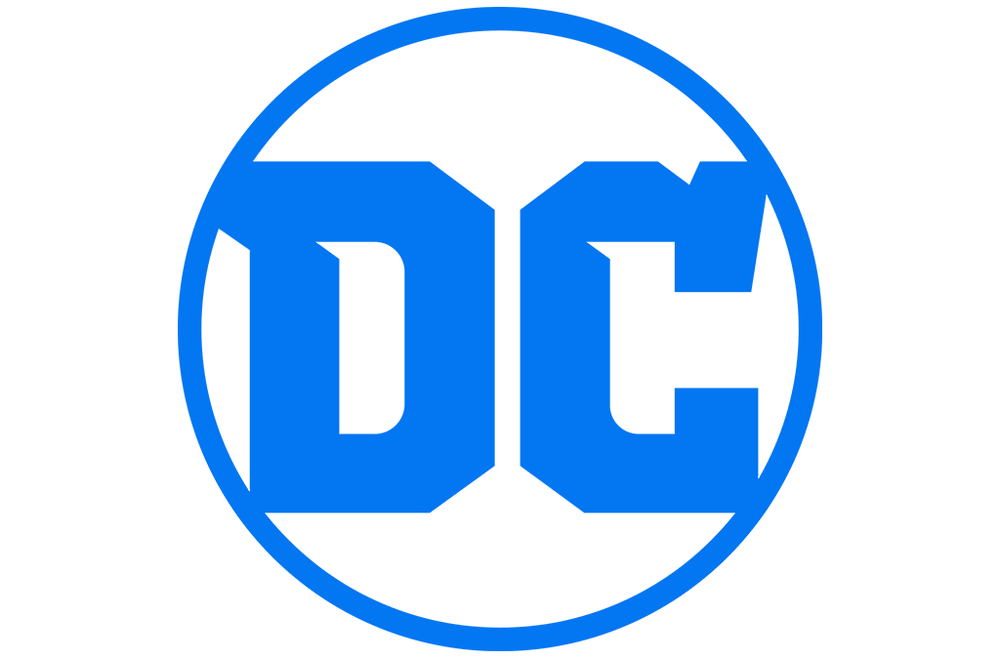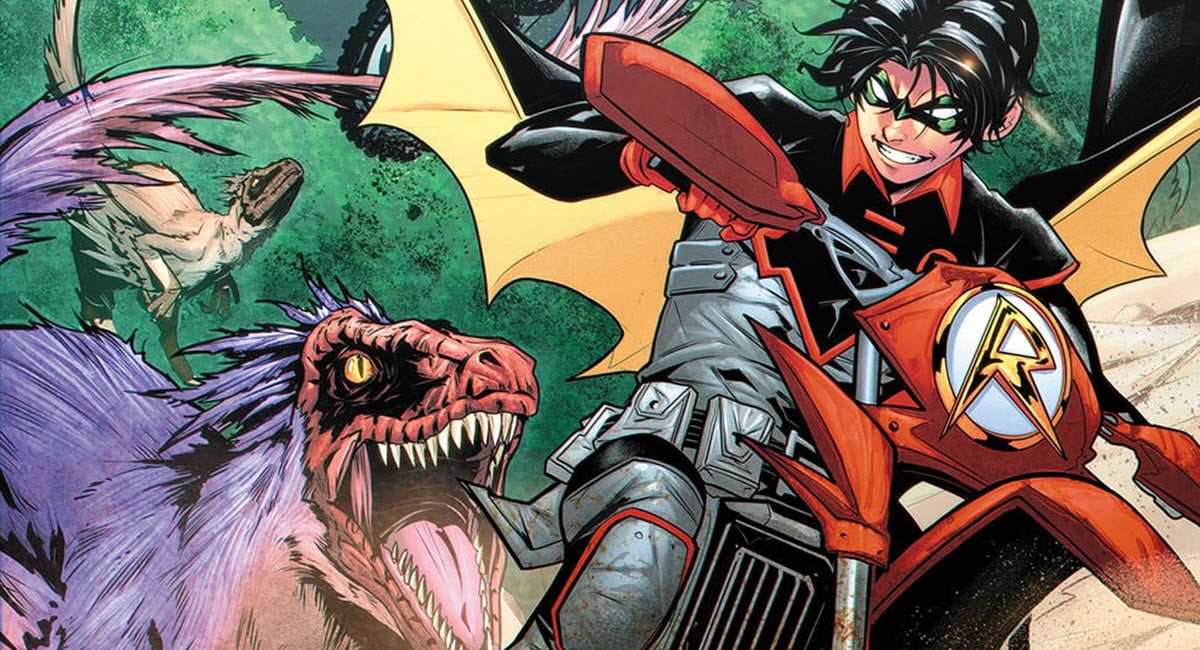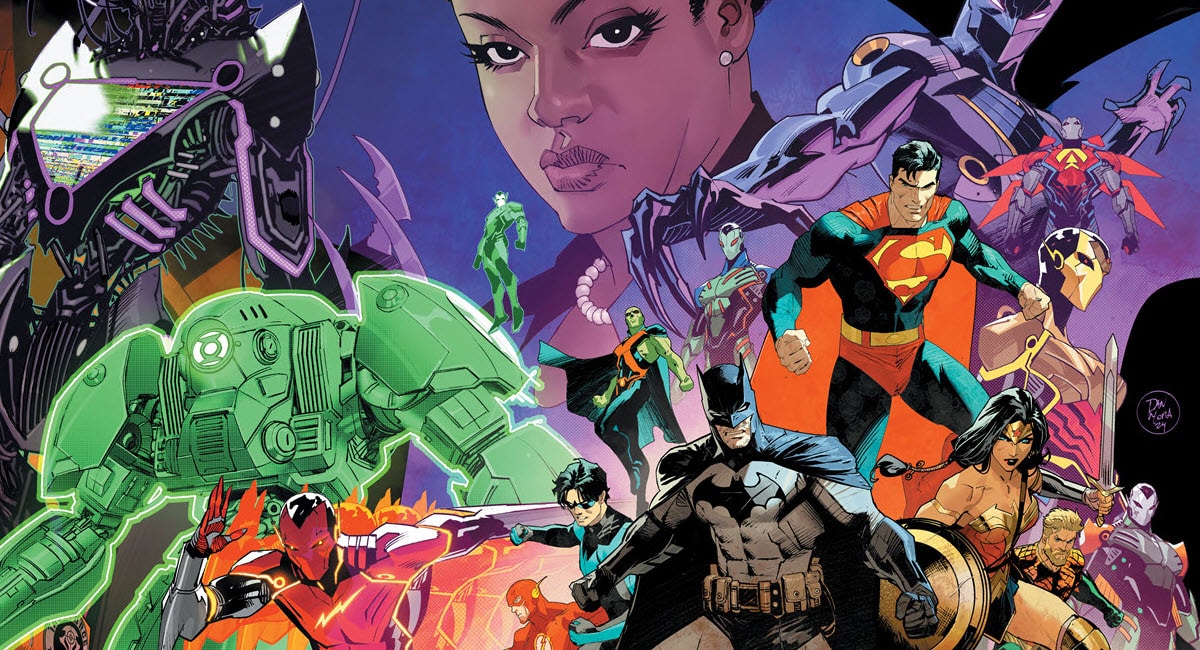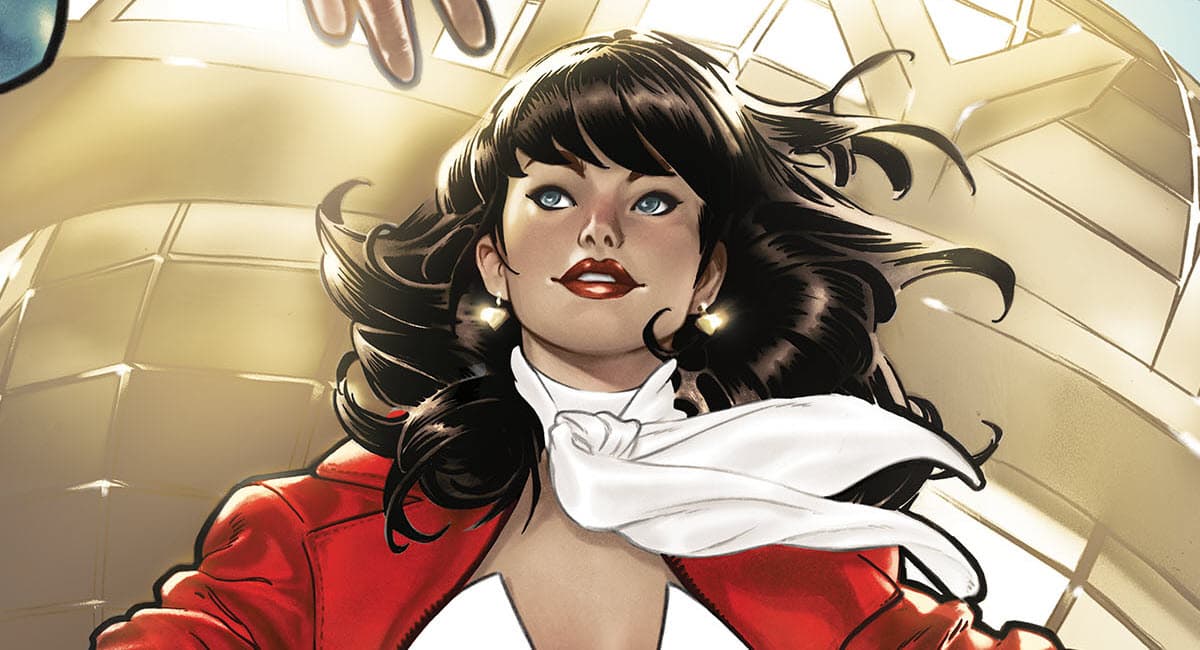DC Comics is ending a number of their monthly titles, including Young Justice, Teen Titans, John Constantine: Hellblazer, Hawkman, and Suicide Squad.
The end of these series became known Friday in the publisher’s November solicits, where preview info for those books was stamped with the dreaded FINAL ISSUE. This reduction in DC’s monthly comics line comes amid news that DC was undergoing massive layoffs (you can read Heidi MacDonald’s latest update on that for more). As anxiety rose online about the dual reductions, DC Comics Publisher Jim Lee (one of the few senior leaders to survive the cuts) spoke with The Hollywood Reporter in a conversation Friday seemingly aimed at quelling concerns.
Lee issued an assurance via THR that “We are still in the business of publishing comics.” Lee then went on to say that in the wake of the layoffs, the next few months would see DC reorganizing as well as reducing its line. If it feels like we’ve been here before, it’s because we have, recently, with previous layoffs and linewide reductions in early 2019. That news saw similar assurances issued, almost word for word in some cases.
We’re cutting our line in the name of higher quality. Comics are still central to the DC brand. Everyone involved with the company is behind that…it’s all very familiar.
Lee also discussed the experienced editors who were staying with the company, a duo whose ascendance is a silver-lining for many who follow DC Comics: Marie Javins and Michelle Wells. The pair will be serving as co-interim-editors-in-chief, having previously headed up digital strategy and YA publishing, respectively. A new general manager position for DC Comics will go to a person whose identity has not yet been revealed, with the individual starting work in September. Reporting on this site and others has suggested that person has prominent experience in eSports.
Another noteworthy bit in Lee’s interview was that there was no pencils down notice. This would indicate the titles known to be ending as of today were always going to end, which is also in line with reporting on this site and others regarding a plan that at one point called for a new status quo for all monthly titles this fall. Connecting a few dots, the books ending now seem likely to have been part of that, though it remains to be seen if they’ll ever return or be replaced.
Other news addressed by Lee is that some aspects of the company’s streaming service, DC Universe, including all their original content, would be merging with HBO Max, while other elements would be preserved in a new way that has not been announced yet. Meanwhile, Lee said the company’s collectibles line, DC Direct, will also change, likely moving to a higher price point that will accompany a new licensing model.
When asked what to expect from DC in two years time, Lee said essentially that there would be more focus on digital content.
While it’s nice to hear from Lee, it is, perhaps, still easy to be pessimistic, conjuring up doomed scenarios in which an 80-year publishing tradition is gutted and cast aside in favor of a low-overhead minimalistic approach to the medium that (more blatantly) relies on Batman’s invincible popularity while doing the bare minimum to maintain IP, all in the service of film, TV, and merchandising.
It’s not a giant leap to wonder if DC’s corporate owners are also following some kind of playbook for slowly gutting legacy print media, pushing many of the highest paid folks out the door (many never to be replaced) and reducing physical product in the name of less-costly digital replacements, as has been the case with other aging periodicals like newspapers and magazines. So yeah, from a certain angle, it’s all a bummer, especially when you start thinking about how any reduction in resources and investments (regardless of reasoning) from such a large company in a space as small as comics will likely have a ripple effect. (Excuse me, I think I need a minute.)
However! DC Comics is also hosting its online DC Fandome on August 22, which has a schedule that features a new “Surprise DC Comics Panel.” While the old model of publishing comics at DC has very much been reduced and uprooted, a few glimpses of a deliberate future would be nice, with new titles or exciting initiatives standing in support of everything Lee just told us.









This is the beginning of the end of DC’s print comics-I have already substantially cut down on what DC comics I buy because the line has become so lackluster as of late. DC has had major problems the last few years which has led up to this moment. Brian Bendis coming aboard Dc to write has not panned out. Doomsday Clock which had the potential to be a blockbuster for DC fizzled out because of constant delays. The DC movies unevenness has also contributed to the possible fall of DC comics. If the movies had been better and had made as much money as the Marvel movies it may have given DC a cushion for a few more years. Print media is an endangered species right now. 10 years from now Comics, newspapers and magazines will be no more. This is a sad week for anyone who loves comics.
you seem fun, dominic.
Still way, way too many titles.
I feel bad for the comic shops but they need to transition to what really sells: Raina’s books, Dav Pilkey, Jeff Kinney, manga, DC’s YA and tween books, etc. Just walk into any remaining Barnes and Noble stores, and you’ll see immediately which section is exploding and spilling over into the aisles. The comic shops need to clean up, get some fresh paint and signage, and staff the stores with fresh faces — women in their 20s with a love for comics and manga. Advertise with coupons on social media targeting young parents and teens. You’re offering something Amazon cannot — a place to easily browse the books and smell the paper.
Sweet.
If the idea is to move more towards YA content and “family-friendly” fare, they might as well shut down the whole place right now.
I gotta say if manga and indie are still the direction to supposedly go, I’m out. Marvel has pretty much ruined their artist lineup, filling it with cartoony art and manga influence, while DC has at least stuck with, overall, tried and true “realistic” comic artists. I could count the number of great artists I personally enjoy from Marvel on one hand. And I might not need all five fingers. The manga/indie influence in mainstream comics was great for a while, but at least at Marvel it’s completely highjacked the industry!
I look forward to the Nu32!
Better still, the Nu24!
I still think the most likely scenario is that AT&T/Time Warner will eventually close down all but the most lucrative books and farm the rest out to another publisher like Dark Horse, BOOM!, or IDW. There is still too much money to be made in the physical comic book industry for them to completely abandon it.
DC just cancelled a bunch of books, two of which I really enjoyed (Hellblazer & Suicide Squad). While the sales numbers for Hellblazer may not have satisfied DC, I can’t imagine a publisher like Dark Horse or IDW wouldn’t be able to make those numbers work for them.
I’m sad to see DC take this approach, but it just means more money I can put towards Image, Ahoy, AWA, BOOM!, etc. Shops that haven’t diversified are probably screwed….but I think the rest will be able to weather this.
“If the idea is to move more towards YA content and “family-friendly” fare, they might as well shut down the whole place right now.”
“I gotta say if manga and indie are still the direction to supposedly go, I’m out.”
I’d like to see variety, not just the same thing over and over. Look at DC and Marvel’s output before the mid-1980s, and you’ll see all kinds of comics — not jut superhero but also sci-fi, horror, western, war, romance, satire, kids’ comics, etc. And all kinds of art, from cartoony to realistic.
The Big Two have spent 35 years aiming most of their product at a shrinking comic shop audience that wants the same thing (superheroes) drawn in the same generic way. They’re paying the price now.
“There is still too much money to be made in the physical comic book industry for them to completely abandon it.”
A lot of people would dispute that. The money is in existing IP that can generate streaming content for HBO Max and Disney Plus. That’s what these companies are really interested in.
So depressing to see a talent like Jim Lee opt to become a full fledged corporate hack.
Not one word of concern, not one word of hope in that interview for the dozens and dozens of people he fired. Not one.
Just the same non-factual spin about digital Comics, but this time dressed with some vague nonsense his boss told him to say about International, like that’s a New Thing too…
Pathetic.
Bill: Sure, there is more money in IP, I definitely would not dispute that. Still, I don’t think anyone has said that print comic books lose money or are a loss leader (just yet) for companies like Marvel and DC. The issue seems to be that comics don’t make ENOUGH profit for AT&T/Time Warner.
Which is why I think it is more plausible that they would initially farm out their lower-tier properties to publishers, collect that flat fee and not have to inherit any of the costs or headaches of managing a monthly comic book.
Clearly the primary focus of DC has shifted to YA & digital and I don’t know if that will shift anytime soon considering we very well could see further retail closures due to the poorly handled pandemic we all face, a terrible economy, and public health concerns. Still, is DC going to just give up on publishing Batman or Justice League anytime soon? No, I just think those books are still profitable enough to keep DC in the publishing game.
@eggbert621
Jim Lee has probably now been an C-suite guy longer than he was/is a comic book artists. You don’t survive multiple decades at a company in a leadership position by having a spine or “doing whats right”. I don’t like it, but anyone looking at Jim Lee hoping for “salvation” at fooling themselves.
@mikew
I can assure you that I have never once looked at Jim Lee for “salvation”. Thanks for trying to put words in my mouth though!!
I just wonder why a guy gets a pass for being shitty at his job…
“Jim Lee has probably now been an C-suite guy longer than he was/is a comic book artists.”
So different from Roy Thomas, who stepped down as Marvel’s editor in chief when Stan Lee wanted him to enforce policies that Thomas couldn’t go along with.
I think that a year from now, DC’s only printed comics will be graphic novels and trades, sold mainly in bookstores (not comic shops). They may have a certain number of online monthly comics.
Back in 1984, DC came close to leasing several of its characters to Marvel. Jim Shooter had mock covers made up (“Superman — First Marvel Issue!”) Sean Howe’s book “Marvel Comics: The Untold Story” has the details.
1.) Jim Shooter literally predicted this in an interview years ago.
2.) DC could bring back anthologies to feature multiple characters and creators.
3.) But they probably won’t.
4.) Has anyone brought up the endless loop of events and reboots having a significant effect on the decrease of loyal buyers? Because that’s why I stopped buying DC.
Answering Heather’s comments:
1) Yes, I know.
2) I loved anthology comics when I was young, and I’d read them again.
3) No, they probably won’t bring back anthologies. The conventional wisdom is that anthology comics don’t sell in the U.S., or at least haven’t sold well since the ’70s.
4) The endless reboots, relaunches and phony “events” have been big problems for decades, and I’m sure a lot of fans have quit both DC and Marvel because of them.
I don’t expect floppies or superheroes to disappear anytime soon, but they may be a smaller part of the comics market. I’m fine with that. I also think reprint volumes (for nostalgic older fans and younger fans who haven’t read the “classics”) will be an increasing part of Marvel and DC’s business.
“emphasizing digital” while cutting DC universe down to the bone does not add up.
Solo500:
Aren’t they just turning DC Universe into a Marvel Unlimited clone? I don’t know if that is “cutting it to the bone”, so much as them realizing that there was probably a good number of folks who subscribed to it only for the video content and never read the comics and vice versa (myself included in the latter).
If they bumped the DC Universe service so it was at parity with Marvel Unlimited in terms of when books came out (6 months after shelf release) and expanded it to include the Vertigo content they own I would probably be on board. The DC Universe talk show and all that other stuff always seemed like a waste of money.
This isn’t particularly surprising.
Look at it this way, how long does it take to read a comic for $3.99? Ten minutes? Fifteen? Multiply it out to an hourly rate, and it equals or exceeds the cost of a movie. Then look at what has happened to movies–Covid-19 notwithstanding–the number of people going to movies (not the total sales, which is inflated by rising prices) has been dropping in comparison to stay at home Netflix fans.
Bottom line: comics have outpriced their value in the entertainment market except for dedicated fans. Digital, which does not include paper and costly distribution, can bring it back into line. And, I hate this math; I like reading real paper. But, I’m not a bean-counter.
I guess what it comes down to is that the corporate end of the business has decided that they have enough characters to do movies for a long time to come. They don’t really need print comics. They have echo sights on the web that will hype any superhero movie or show they come up with based on the characters that have proven track records.
I don’t think that corporate sees comic shops as anything important and comic readers as anything but a built in fan base to be exploited.
“I don’t think that corporate sees comic shops as anything important and comic readers as anything but a built in fan base to be exploited.”
I don’t disagree, but I don’t think there’s much to mourn here. Pandering to a dwindling comic shop audience has crippled comics on a creative level. Mainstream comics are now devoted almost entirely to superheroes, and they’re dependent on a cycle of reboots, cancellations and relaunches, and “events” that require fans to buy dozens of titles.
Marvel and DC have cut their own throats. Instead of trying to reach a larger audience, they’ve stuck with the nerdy fanboy audience. These problems started before Disney bought Marvel, and before AT&T took over Warner and DC.
(In comics, “mainstream” has come to mean Marvel and DC, while “independent” means anything not published by the Big Two.)
Thanks for the clarification, Bill. I didn’t quite know what you meant by ‘mainstream comics’ at first. I tend to view Image, Dark Horse, IDW, Boom and Archie as mainstream comics, myself (if less popular), but I suppose that’s up to a person’s opinion.
Geoffrey: If anything, Archie is the most mainstream of them all, what with the digests being a mainstay of checkout lanes.
I pretty much couldn’t care less about the collapse of the direct market. What concerns me is how the disappearance of the DM would affect Archie’s newer, non-classic-looking floppy titles (Archie, Vampironica, Sabrina: Something Wicked, etc.), since those don’t really seem to have a place outside the DM (and, arguably, were created specifically to be sold in the DM before being collected into trades). I think I might have seen an issue of Life With Archie: 10th Anniversary (a classic-style floppy title, albeit an AU-future one that’s out of continuity) in Dollar General, but that’s about it. Are they sold in Barnes and Noble or Books-A-Million? Will they be published digital-only or as OGNs? Or canceled entirely?
I agree that a lot of non-Marvel and DC comics are pretty mainstream (as are a lot of “independent” movies, some of which have studio financing or distribution). These are just labels that people have created for convenience.
Mainstream has come to be associated with “companies that have popular superhero universes,” which basically means Marvel and DC.
Make no mistake: if either of these companies stopped publishing monthly floppies, a lot of comic shops would go out of business. Especially the ones that haven’t diversified their offerings.
Comments are closed.